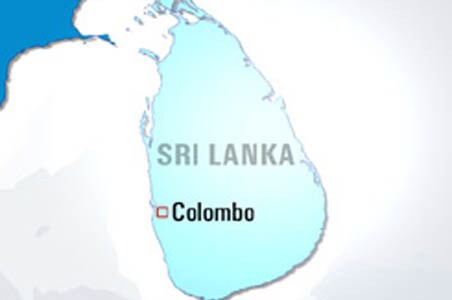
Colombo:
Key facts about Sri Lanka, which held its presidential election Tuesday. The elections were the first peacetime presidential vote since Tamil Tigers took up arms in 1972.
Incumbent Mahinda Rajapaksa emerged victorious against former army chief Sarath Fonseka. Counting showed that hehad secured nearly 60 per cent of the total votes polled, according tohis office.
Geography: A tropical island off India's southern tip. Plantations of coconut, rubber, tea, cinnamon and other spices, with large, sparsely inhabited areas of forest and scrub in its 25,500 square miles (66,000 square kilometers).
People: Population about 20 million: 74 per cent Sinhalese, 18 per cent Tamil, 7 per cent Muslim. Most Sinhalese are Buddhists, while Tamils are predominantly Hindus or Christians.
Capital: Colombo (population 650,000).
The Conflict: The government crushed the Tamil Tiger rebels' quest for an independent state in the north and east last year after 25 years of armed insurrection. The conflict killed 80,000-100,000 people, including at least 7,000 civilians in the last five months of fighting alone. Nearly 300,000 people were displaced and interned in camps soon after the war, and more than 100,000 remain there.
Tamil rebels began fighting in 1983 for a separate homeland, accusing the majority Sinhalese of systematic discrimination. Government forces crushed the main rebel group, the Liberation Tigers of Tamil Eelam (LTTE), last May, killing its supreme leader, Velupillai Prabhakaran, and all his top commanders.
Observers say the government did not follow up its military victory with an offer of political accommodation with the Tamil minority, which is seeking more self-rule.
The Election: The two main candidates are incumbent President Mahinda Rajapaksa and his former army commander Sarath Fonseka. There are 20 other candidates, but they have virtually no chance of winning.
Rajapaksa and Fonseka enjoy a hero's status among the country's Sinhalese majority for their role in defeating the Tamil rebels.
Rajapaksa says a Fonseka victory could lead to military dictatorship. Fonseka says the current government is mired in corruption, and promises to change the constitution to curb presidential powers.
Both have courted the Tamil vote. The main Tamil political party, which demands quick resettlement of tens of thousands of members of their minority affected by war, is supporting Fonseka.
Violence has marred the election campaign.
Incumbent Mahinda Rajapaksa emerged victorious against former army chief Sarath Fonseka. Counting showed that hehad secured nearly 60 per cent of the total votes polled, according tohis office.
Geography: A tropical island off India's southern tip. Plantations of coconut, rubber, tea, cinnamon and other spices, with large, sparsely inhabited areas of forest and scrub in its 25,500 square miles (66,000 square kilometers).
People: Population about 20 million: 74 per cent Sinhalese, 18 per cent Tamil, 7 per cent Muslim. Most Sinhalese are Buddhists, while Tamils are predominantly Hindus or Christians.
Capital: Colombo (population 650,000).
The Conflict: The government crushed the Tamil Tiger rebels' quest for an independent state in the north and east last year after 25 years of armed insurrection. The conflict killed 80,000-100,000 people, including at least 7,000 civilians in the last five months of fighting alone. Nearly 300,000 people were displaced and interned in camps soon after the war, and more than 100,000 remain there.
Tamil rebels began fighting in 1983 for a separate homeland, accusing the majority Sinhalese of systematic discrimination. Government forces crushed the main rebel group, the Liberation Tigers of Tamil Eelam (LTTE), last May, killing its supreme leader, Velupillai Prabhakaran, and all his top commanders.
Observers say the government did not follow up its military victory with an offer of political accommodation with the Tamil minority, which is seeking more self-rule.
The Election: The two main candidates are incumbent President Mahinda Rajapaksa and his former army commander Sarath Fonseka. There are 20 other candidates, but they have virtually no chance of winning.
Rajapaksa and Fonseka enjoy a hero's status among the country's Sinhalese majority for their role in defeating the Tamil rebels.
Rajapaksa says a Fonseka victory could lead to military dictatorship. Fonseka says the current government is mired in corruption, and promises to change the constitution to curb presidential powers.
Both have courted the Tamil vote. The main Tamil political party, which demands quick resettlement of tens of thousands of members of their minority affected by war, is supporting Fonseka.
Violence has marred the election campaign.
Track Latest News Live on NDTV.com and get news updates from India and around the world

